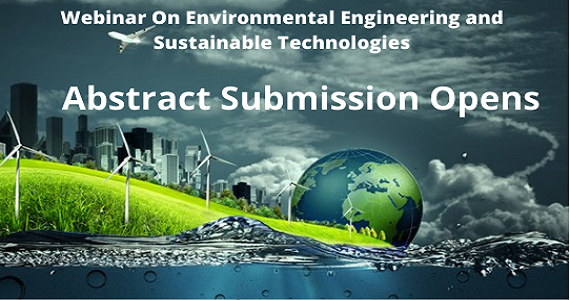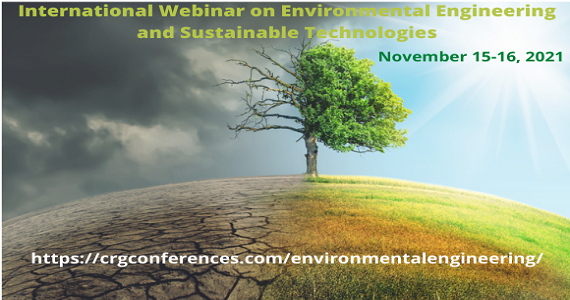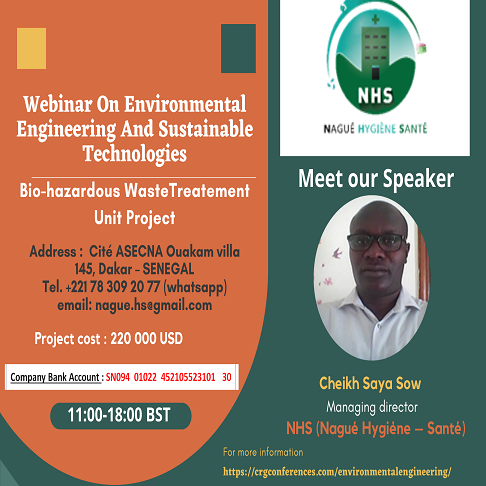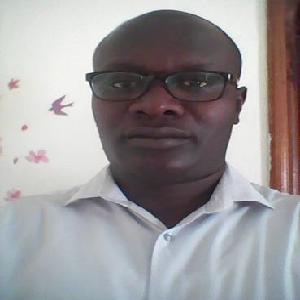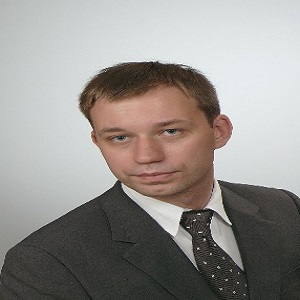Coalesce Research Group warmly invites all the Speakers, Delegates, Researchers, Students, and Industrialists to be a part of our "International Webinar on Environmental Engineering and Sustainable Technologies”. It is a two-day conference going to be held from November 15-16 ,2021.
The theme of the conference is “Future Developments in Environmental Engineering and Sustainable Technologies” covering a wide extent of critically vital sessions of Environmental Engineering and Sustainable Technologies equally. Environmental Engineering and Sustainable Technologies section will cover all the major and minor topics which help in finding solutions for Sustainable Technologies and Environmental problems (Environmental Sustainability and Development, Sustainable Technologies engineering, catalysis, sustainability, Physical, chemical and computational) and fundamentals.
The conference includes Keynote and Plenary Sessions, Speaker Sessions, Young Researcher Forum, Workshops, Symposia, Video Presentations, Poster presentations, E-Posters, Exhibitions, and an opportunity for B2B meetings on the most recent improvements in the field of Environmental Engineering,Sustainable Technologies, Renewable Energy, Green organic synthesis routes, Risk, Pollution Control, Mitigation Natural Resources and many more... by specialists from both Scholastic and Commerce foundation.
Targeted Audience
Environmental Science and Technology
Environmental Science and Technology
Biofuels, Biomass and Bioenergy
Global environmental change and ecosystems management
Climatic change and Health
Environmental Engineering and Biochemistry
Catalysis & reaction engineering
Sustainable Technologies
Nanotechnology
Sustainable & clean technologies
Biodegradation of hazardous substances
Mathematical modeling in chemical engineering
Physical, Theoretical and Computational Chemistry
Physical, Theoretical and Computational Chemistry
Guidelines For Speakers
- Keep the number of slides in your Presentation to a minimum and follow the assigned slots.
- Please stop when signalled to do so by the Chair.
- Personal laptops should not be used unless in any unavoidable conditions.
- The Videos will not be recorded.
- Question Sessions, thanks and acknowledgement of the speakers will take place during the session or after completion of the session, so please stay until the end of the session.
Guidelines For Poster
- Each poster should be approximately 1x1 M in Size The title, contents, text and the author’s information should be clearly visible even from 1-2 feet.
- Present numerical data in the form of graphs, rather than tables.
- If data must be presented in table-form, keep it Simple to be easily understandable.
- Visuals should be simple, clear and bold. Avoid acronyms and mathematical notations as much as possible.
- Posters with 800-1000 words or less are perfect.
- Avoid submitting compactly packed, highly worded- count posters.
- Categorize your poster into subdivisions, e.g., Introduction, Methods, Results; Discussion, Conclusions, and Literature Cited.
- Use bright colors to enhance the better visibility Besides your project, you can also include future research plans or questions.
Opportunities for Conference Attendees
For Researchers & Faculty
- Speaker Presentations
- Poster Display
- Symposium hosting
- Workshop organizing
For Universities, Associations & Societies
- Association Partnering
- Collaboration proposals
- Academic Partnering
- Group Participation
For Students & Research Scholars
- Poster Presentation Competition (Winner will get Best Poster Award)
- Young Researcher Forum (Award to the best presenter)
- Student Attendee
- Group Registrations
For Business Speakers
- Speaker Presentations
- Symposium hosting
- Book Launch event
- Networking opportunities
- Audience participation
For Companies
- Exhibitor and Vendor Booths
- Sponsorships opportunities
- Product launch
- Workshop organizing
- Scientific Partnering
- Marketing and Networking with clients
Abstract Peer-review Process/Guidelines
- The Reviewing Committee of Conference ensures high-quality peer review process for all abstracts submitted.
- The decision of abstract acceptance will be judged by a panel of experts emphasizing whether the findings and / or conclusions are novel and make useful contributions to the field.
- The committee operates a single / double-blind peer review process for all the abstracts submitted, where both the reviewer and the author remain anonymous.
The following are the steps that each abstract of Conference undergoes during the process of peer review.
- All submitted abstracts are reviewed by internal editorial team to ensure adherence to the conference scope and abstracts which have passed this initial screening are then assigned to the session chair / review committee for evaluation.
- Once the reviews have been received, the review committee decides to accept or reject a manuscript, or to request revisions from the author in response to the reviewers’ comments. If the decision tends to be minor revision or major revision, authors will be given 14 days to resubmit the revised abstract.
Criteria to be considered for Scoring.
The abstract should be reviewed according to the following criteria:
- Originality of concept/approach and level of innovativeness
- Significance/impact/relevance to conference theme
- Quality of research design/theoretical argument
- Conclusions and interpretations of results
- Presentation style: Coherence and clarity of structure

